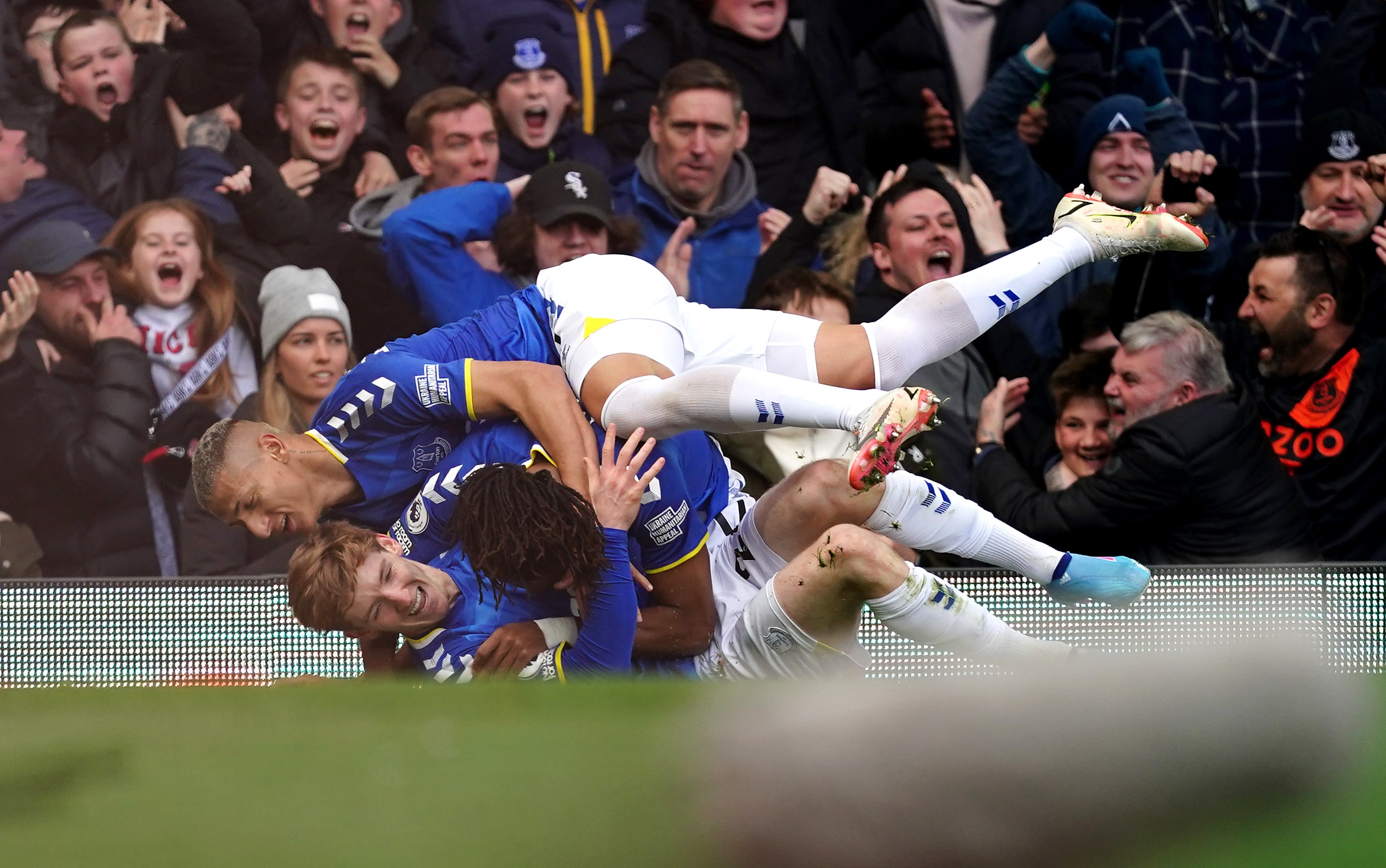
Richarlison was on the left wing, juggling the ball on his head like a performing seal. Meanwhile, Manchester United stood and watched. So did their interim manager. Ralf Rangnick arrived with a reputation as the godfather of gegenpressing but it was hard to imagine a team coached by his fellow evangelists, whether Jurgen Klopp or Mauricio Pochettino, Ralph Hasenhuttl or Marcelo Bielsa, being so passive. They would have hassled and harried.
But then United have never looked a Rangnick team. Perhaps they never could, given the illogical element of selecting a strategist defined by a collectivist ethos to manage a bunch of individuals ill-equipped to press, with a surfeit of supposed stars and too few selfless workers.
Rangnick helped define a school of thought but his United lack an identity. He inspired a theory that captured the footballing Zeitgeist but he may be past his prime. Now, as the Rangnick project enters its final throes, his appointment ranks as another piece of confused thinking by United.
Certainly his message has not been getting across. “For us as a coaching staff it is difficult to understand why we didn’t create more chances,” said Rangnick as he reflected on the 1-0 defeat to Everton. If much of the fault for that lies with his players, the sense is that he has not endeared himself to many at Old Trafford. A couple of United’s backroom staff believe he does not even know their names. Whether tactically or psychologically, he has not had much of an impact.
Perhaps he was unsuited to the big names on the pitch and the smaller ones behind the scenes alike. He is a man with long-term ideas chosen for a short-term task, a director of football picked to be the manager. He wants high-energy football and has United’s low-effort players. They contrived to run 10km less than an Everton team playing their third game in seven days. As Rangnick readily told anyone, even Burnley scored three goals against Everton. United got none.
But then goals have been relative rarities under him. United have just 29 in 22 games in all competitions. When Fred limped off at Goodison Park, it removed the third highest scorer of Rangnick’s reign. Under the German, Marcus Rashford has gone 11 games without a goal. Cristiano Ronaldo has only scored in two of his 13 appearances in 2022. Bruno Fernandes’s tally for him stands at four in 19 matches, Paul Pogba’s at one in 12.
With the exceptions of Jadon Sancho and Anthony Elanga, Rangnick has got less from United’s attackers than Ole Gunnar Solskjaer did. They have failed at playing 4-2-2-2 and a strikerless system with Fernandes and Pogba up front. They have scarcely been prolific with more orthodox tactics.
It is a reflection of them, and him. They are the most famous rabble in football. He has neither organised them nor galvanised them. As the prospects of Champions League football recede – and Rangnick said bluntly on Saturday that if United perform like that, they do not deserve it – and, with less to play for, he seems still more of a placeholder, Rangnick has little need to defend them now. Not when the season will end in disappointment. He said uncertainty about what follows should not be an “alibi or an excuse” for underachievement.

It will be instructive if his criticises individuals in his final few weeks. Rangnick already given the United board his verdict on the current squad and volunteered to give his successor his thoughts (though the greater surprise would be if a highly-paid consultant who had coached them and will remain on the payroll does not talk to the next manager).
But he was supposed to buy United time and to book a world-class manager a season in the Champions League, not a voyage to the backwaters of the Europa League or the Conference League. There is something sad that Rangnick, the great Anglophile, has been so ineffectual. A visionary in Germany, in England he has been part of mediocrity and malaise. United were second best to an Everton team with 17 defeats in their previous 22 games.
Rangnick may end his time as only the second best United manager this season, ahead of Solskjaer but behind Michael Carrick. And perhaps there is something quintessentially United about the caretaker being better than the interim, who is in turn preferable to the supposedly permanent manager.







